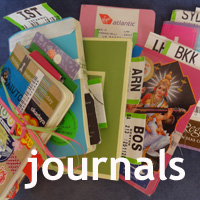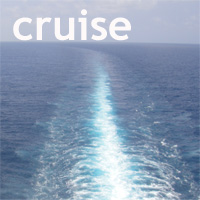Tea and Textiles
 Friday, August 15, 2014 at 11:29AM
Friday, August 15, 2014 at 11:29AM
When I was WI County Chairman, I organised events like this regularly and would have thought nothing of gathering a couple of hundred women together for an afternoon. But a few years later, I don’t do this kind of thing so frequently and it’s surprising how out of practice one gets.
I’d forgotten how much work is involved. I’ve always been of the opinion that it’s easier to get such things done without too much help and would much rather get on and get it done in a small, focused team who know what they are doing. So it was just Marion, Pat and I who arrived around 10.30 yesterday morning with three cars full of display equipment, boxes of treasure and of course, comfortable shoes!
It was lovely to see one or two old favourites appear from the layers and layers of tissue paper. Mrs Winsome-Douglas’ beautiful cushion is such a treasure (well, we assume it’s her work but can’t be 100% certain) and each time I see it, I think how well it represents the heritage and development of hand embroidery in this country. Simple, confident, graphic design, exquisitely executed in basic, traditional materials. No tricks, nothing fancy or showy; just handcraft skills of the highest quality.
One by one, the boxes were opened and the contents displayed, ready to have their stories told. The smocks, large and small, always attract the attention and in particular today, there was the chance to have a good look at the Corrie family pallbearers smocks, with the embroidery on the inside of the shoulder; the kind of detail it’s not usually possible to see in a “do not touch” kind of exhibition. Here was an opportunity to look more closely, to handle and admire and of course, to learn.
It was a chance to find out more about of the Needlework Development Scheme, for which a couple of the concertina folders were created; to hear about Olivia Pass and her enthusiasm and promotion of the Dorset Feather Stitch of which the WI archive has a huge collection of aprons, samples, and other related material and also to hear the story of how we found three pieces of Mrs Archibald (Grace) Christie’s work. She was an early editor of Embroidery magazine, author of several essential references for hand embroiderers and the creator of these three exquisite pieces on the table which were not only illustrated in her books but also appear in the copy of Embroidery magazine from 1909 which was sitting alongside them.
I love the Dorset buttons which are so beautifully presented and was delighted to hear about the second frame containing a more recent acquisition of a card of hand worked samples. Coincidentally, the maker’s name on the label just happened to match the name of the woman who wrote the leaflet which has been in the collection since it was published. What treasures…
Of particular interest to the audience yesterday afternoon was the tiny baby’s gown, displayed on a table alongside the exquisite tea cosy so admired by Queen Mary at one of the early craft exhibitions. The little gown was also shown at one of these grand exhibitions in 1932 and was made by a Gloucestershire member, Mrs Hillman, of Kemerton WI. Having been awarded a rare Gold Star (the only one in the county!) it was kept as part of the “loan collection” of needlework before being returned to her family some years later. Thankfully, Mrs Hillman’s daughter (a WI member herself) shared both the story and the gown with the archive and needless to say, yesterday afternoon it proved to be the star of the show.
Mrs Hillman’s exquisite handwork was admired and acknowledged in the days when needle skills were taught and practised more widely than they are today. Yesterday afternoon, they received even more admiration from women who were lost for words to describe the dexterity and attention to detail which makes this little gown such a treasure.
What made the afternoon unique was having some of our local textile heritage alongside these pieces of national importance. Marion had selected a dozen or more tablecloths from our local archive to bring along, including this one from Painswick, which had been part of the National Textile Treasures exhibition a few years ago. As you can see, my ironing left a little to be desired
A small but significant display of typical “Loan collection” items which would have been available for members to borrow and study proved to be of great interest. The gloves in particular attracted the attention of many as a result of local history. One member of the audience recalled her mother sewing gloves at home for Dents and being paid 7 1/2d per dozen – pairs, I assume.
It proved to be a really successful afternoon and hopefully, has inspired a few to pick up their needle and sew. A couple of hours afterwards a few still lingered, taking their time to look and admire and recognising the beauty and significance of what was on the table. As a result, it was gone 6pm when we finally closed the last box, took once last look around the room to make sure we hadn’t forgotten anything and left the hotel staff to do the washing up.
Did I say I’d forgotten how tiring it can be whilst having fun?








Reader Comments